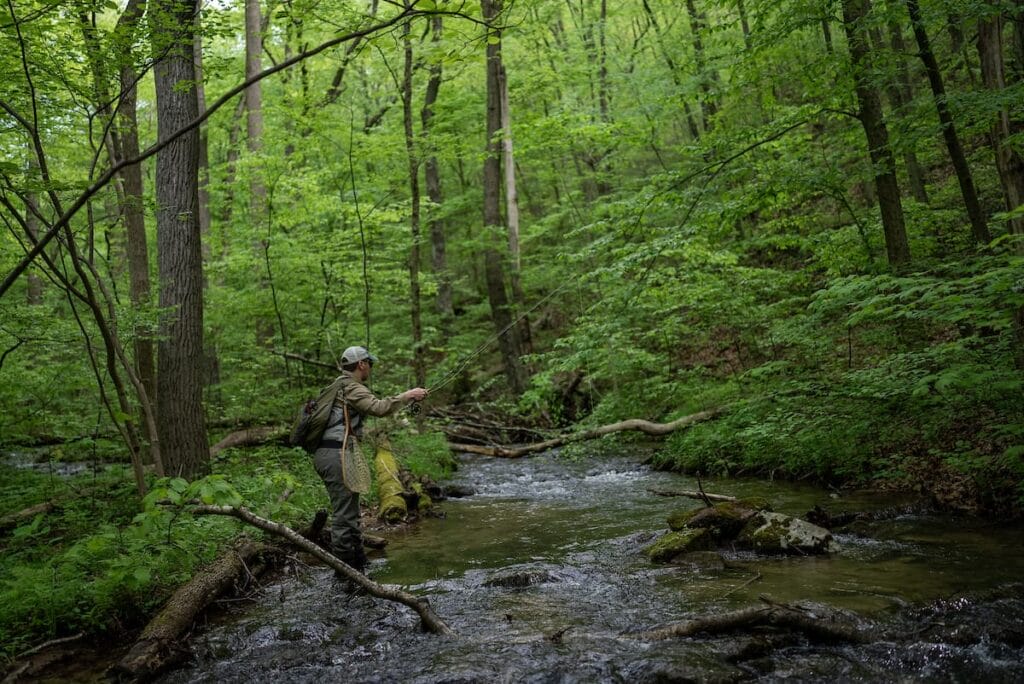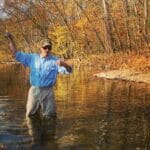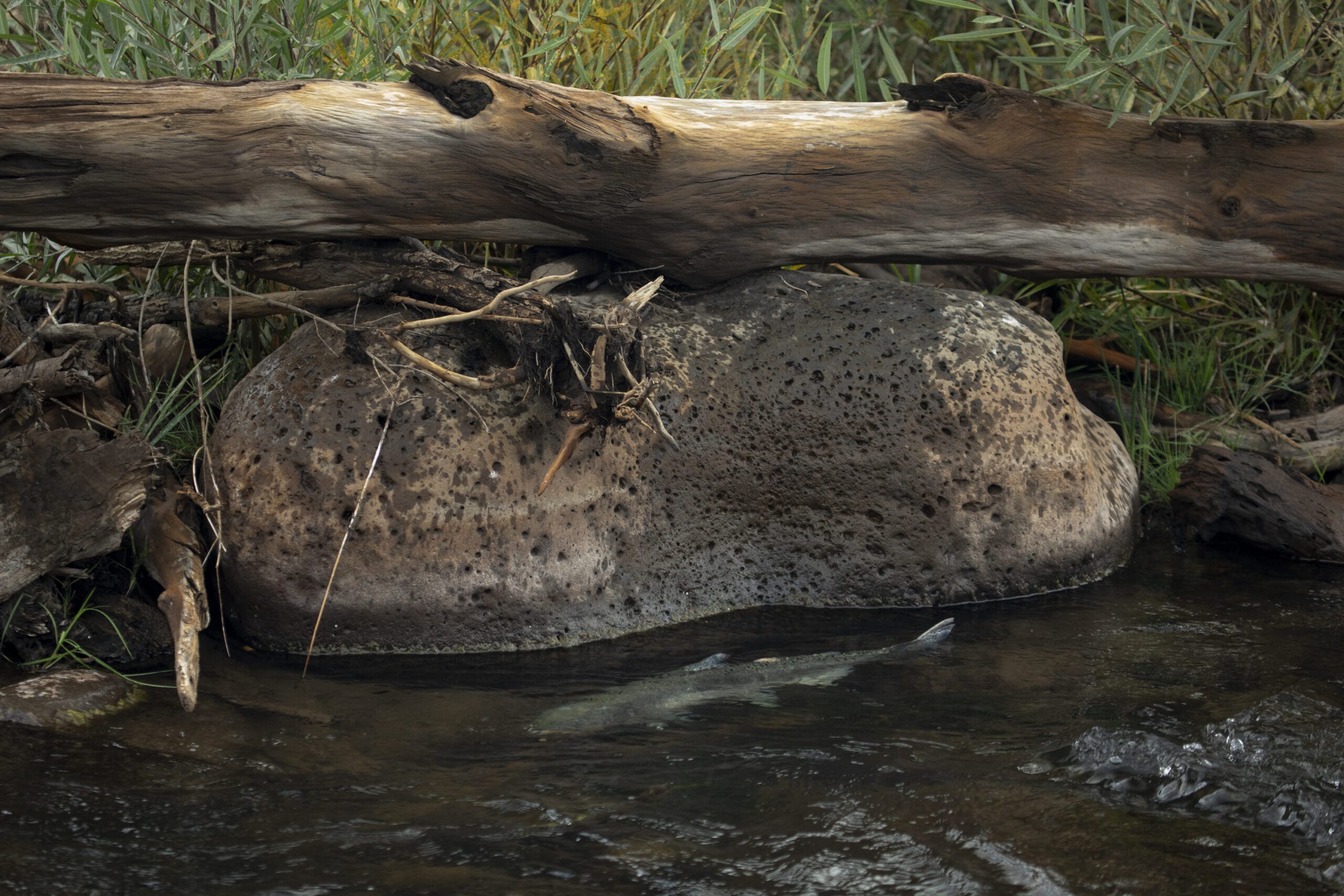The other day, I met Bob Blankenship and Karen Barnett of the South Coast Chapter of Trout Unlimited in California. I listened as they described their work to recover a more natural Los Angeles River, and an alarming vision of recovering steelhead in the river. You must see the LA River to appreciate the audacity of their vision. This is the river whose concrete bed was the scene of the famous car chase in Terminator II.
I walked out of that meeting having committed to a carp expedition on the river, but also knowing not to count out Bob, Karen and the South Coast chapter.
What makes them so remarkable is how typical they are of others in Trout Unlimited. They are simply two ordinary people doing extraordinary work.
Staff and volunteers getting it done
Dan Dauwalter, our fisheries science director, led an interagency team of scientists who determined that we could remove the Apache Trout from the endangered species list. This was the first trout or salmon to be removed from the Endangered Species Act because we recovered it.

Nate Rees won the Arizona Game & Fish Conservationist of the Year award because of his work on Apache trout as well as helping make the case for designating the nearly 1-million-acre Baaj Nwaavjo I’tah Kukveni – Ancestral Footprints of the Grand Canyon National Monument last year. I asked him about both accomplishments at a ceremony with the Governor of Arizona and the Secretary of Interior marking the delisting of the Apache trout.
“Just doing my job, Chris,” he said.
Brian Johnson, our senior policy advisor for water and climate, was a leader in a great coalition that led to the removal of four dams on the Klamath River, effectively re-opening 450 miles of habitat that had been lost to salmon and steelhead for over a century. We took those dams out this year, and now salmon and steelhead swim freely past the debris. When asked about it, Brian said this: “The most important lesson is the reminder that big things happen when committed people decide that failure is not an option.”
This fall, I spoke at the 40th anniversary of the Cape Cod Chapter, which has led a remarkable restoration of the Quashnet River over the last four decades.
While there, I met Joe Swaluk and learned about his and TU’s efforts to kill the proposed Tocks Island dam on the Delaware River in the 1970s. The dam would have inundated the Walpack Valley and destroyed several miles of New Jersey’s Big Flat Brook—a trout stream my grandfather fished as a boy. Joe told me that he recently drove by the Big Flat Brook and that it was still there and that he was “proud Trout Unlimited did its part and that I did, too.”

In Wyoming, Hillary and Nick Walrath, in partnership with our Headwaters youth education program and the Bureau of Land Management, brought dozens of kids to Muddy Creek for restoration work. Hillary talks about how our work will help to recover Colorado River cutthroat trout, flannelmouth and blue head suckers, “but most important, we are training the next generation of conservation stewards while protecting water supplies for downstream communities.”
In Tennessee and other parts of Appalachia, the Overmountain Chapter and other volunteer leaders gathered to help the victims of Hurricane Helene. The chapter expected 20 people to show up for a weekend clean-up; over 200 attended.
“We were just trying to help the best we can,” Mark Spangler, one of our volunteers in Tennessee, told me. “There is so much negativity—these hurricanes, two wars… On that Saturday, all the negativity disappeared for a while and it reminded me of all the good in the world.”
In the Great Lakes, Jamie Vaughan and Nichol DeMol engaged 3,300 people at events to help make the places they live, love and fish healthier.

A few weeks before the election, I walked the banks of Beech Creek, a stream in central Pennsylvania killed by acid mine drainage (AMD) from historic coal mining. U.S. Rep. Glenn “GT” Thompson, the chair of the House Agriculture Committee, was with us, and when Brian Cooper, TU’s Pennsylvania AMD project manager, told Congressman Thompson about the opportunity to recover the river, the Congressman said, “Let’s do it. Let me know how to help.”
The other day, President Biden signed a bill that our organization has worked on for 23 years—a new law that will help “Good Samaritans” clean up abandoned mines and reverse the damage they have done to our lands and waters. We didn’t have a ceremony or a party that day. It was just another day in the office.
We couldn’t do our work without everyone involved
I think that makes the point, however. The team—including TU’s government affairs VP Lindsay Slater and public policy director, Corey Fisher—did not work to pass that law for the glory and credit; just as Karen and Bob, Dan, Nate, Brian, Joe, Nick and Hillary, Mark, Jamie and Nichol, and Brian are not working for recognition.
This is part of the magic of Trout Unlimited. Teachers, lawyers, bankers, mechanics, small business owners—passionate conservationists, all.
Ordinary people doing extraordinary things.



